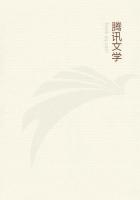This progressive and painful education of our instinct, this slow and imperceptible transformation of our spontaneous perceptions into deliberate knowledge, does not take place among the animals, whose instincts remain fixed, and never become enlightened.
"According to Frederic Cuvier, who has so clearly distinguished between instinct and intelligence in animals, `instinct is a natural and inherent faculty, like feeling, irritability, or intelligence.The wolf and the fox who recognize the traps in which they have been caught, and who avoid them; the dog and the horse, who understand the meaning of several of our words, and who obey us,--thereby show _intelligence_.The dog who hides the remains of his dinner, the bee who constructs his cell, the bird who builds his nest, act only from _instinct_.Even man has instincts: it is a special instinct which leads the new-born child to suck.But, in man, almost every thing is accomplished by intelligence; and intelligence supplements instinct.The opposite is true of animals: their instinct is given them as a supplement to their intelligence.'"--Flourens: Analytical Summary of the Observations of F.Cuvier.
"We can form a clear idea of instinct only by admitting that animals have in their _sensorium_, images or innate and constant sensations, which influence their actions in the same manner that ordinary and accidental sensations commonly do.It is a sort of dream, or vision, which always follows them and in all which relates to instinct they may be regarded as somnambulists."--F.
Cuvier: Introduction to the Animal Kingdom.
Intelligence and instinct being common, then, though in different degrees, to animals and man, what is the distinguishing characteristic of the latter? According to F.Cuvier, it is REFLECTION OR THE POWER OF INTELLECTUALLY CONSIDERING OUR OWNMODIFICATIONS BY A SURVEY OF OURSELVES.This lacks clearness, and requires an explanation.
If we grant intelligence to animals, we must also grant them, in some degree, reflection; for, the first cannot exist without the second, as F.Cuvier himself has proved by numerous examples.
But notice that the learned observer defines the kind of reflection which distinguishes us from the animals as the POWEROF CONSIDERING OUR OWN MODIFICATIONS.This I shall endeavour to interpret, by developing to the best of my ability the laconism of the philosophical naturalist.
The intelligence acquired by animals never modifies the operations which they perform by instinct: it is given them only as a provision against unexpected accidents which might disturb these operations.In man, on the contrary, instinctive action is constantly changing into deliberate action.Thus, man is social by instinct, and is every day becoming social by reflection and choice.At first, he formed his words by instinct; he was a poet by inspiration: to-day, he makes grammar a science, and poetry an art.His conception of God and a future life is spontaneous and instinctive, and his expressions of this conception have been, by turns, monstrous, eccentric, beautiful, comforting, and terrible.All these different creeds, at which the frivolous irreligion of the eighteenth century mocked, are modes of expression of the religious sentiment.Some day, man will explain to himself the character of the God whom he believes in, and the nature of that other world to which his soul aspires.
"The problem of the origin of language is solved by the distinction made by Frederic Cuvier between instinct and intelligence.Language is not a premeditated, arbitrary, or conventional device; nor is it communicated or revealed to us by God.Language is an instinctive and unpremeditated creation of man, as the hive is of the bee.In this sense, it may be said that language is not the work of man, since it is not the work of his mind.Further, the mechanism of language seems more wonderful and ingenious when it is not regarded as the result of reflection.This fact is one of the most curious and indisputable which philology has observed.See, among other works, a Latin essay by F.G.Bergmann (Strasbourg, 1839), in which the learned author explains how the phonetic germ is born of sensation; how language passes through three successive stages of development; why man, endowed at birth with the instinctive faculty of creating a language, loses this faculty as fast as his mind develops; and that the study of languages is real natural history,--in fact, a science.France possesses to-day several philologists of the first rank, endowed with rare talents and deep philosophic insight,--modest savants developing a science almost without the knowledge of the public; devoting themselves to studies which are scornfully looked down upon, and seeming to shun applause as much as others seek it."All that he does from instinct man despises; or, if he admires it, it is as Nature's work, not as his own.This explains the obscurity which surrounds the names of early inventors; it explains also our indifference to religious matters, and the ridicule heaped upon religious customs.Man esteems only the products of reflection and of reason.The most wonderful works of instinct are, in his eyes, only lucky GOD-SENDS; he reserves the name DISCOVERY--I had almost said creation--for the works of intelligence.Instinct is the source of passion and enthusiasm; it is intelligence which causes crime and virtue.
In developing his intelligence, man makes use of not only his own observations, but also those of others.He keeps an account of his experience, and preserves the record; so that the race, as well as the individual, becomes more and more intelligent.The animals do not transmit their knowledge; that which each individual accumulates dies with him.















